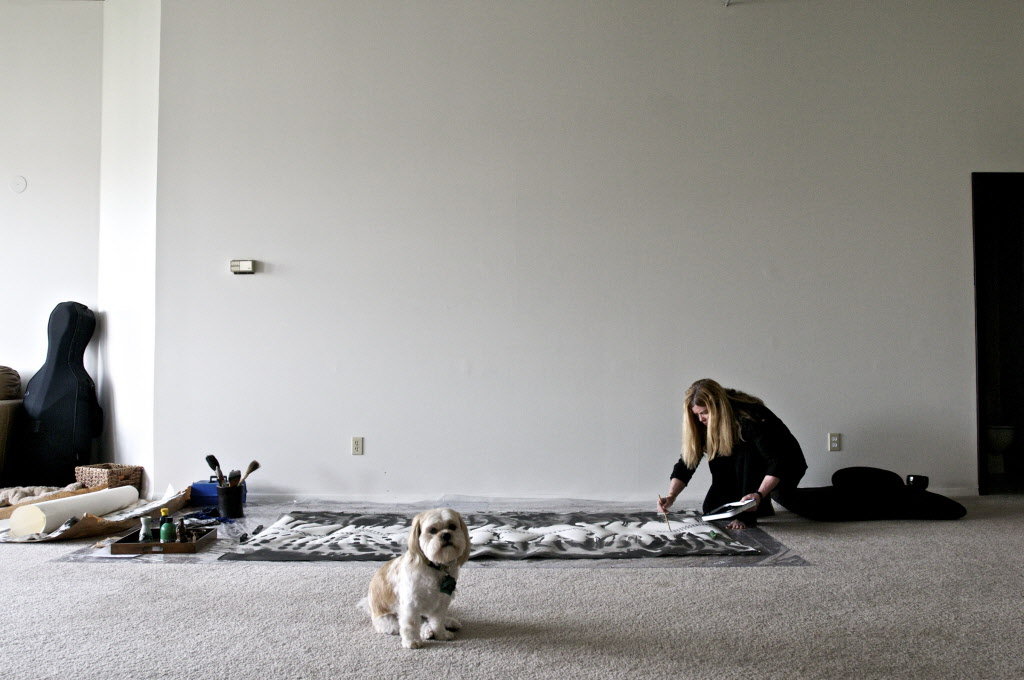March 30, 2012—The Non-Traditional Healthcare Workforce Committee, which has been designing standards for community health workers in Oregon, believes it’s important to continue its work to oversee the development of that work force. It intends to ask the Oregon Health Policy Board for permission to become a formal advisory body.
“There’s a lot more work to do,” said Carol Cheney, the committee’s facilitator and equity manager in the Oregon Health Authority’s Office of Equity and Inclusion.

Last year, the committee began developing training and education standards for community health workers, and make recommendations to the Policy Board about how the work force should be incorporated into coordinated care organizations (CCOs). The CCOs are part of a major overhaul to the Oregon Health Plan’s delivery system, and are expected to integrate physical and mental healthcare for 650,000 Oregon Health Plan patients in August.
The committee is also proposing that its name be changed, and has recommended that it be called the “Community Health Worker-Peer Workforce Advisory Committee.” The committee feels that its current name—which uses the phrase “non-traditional”—runs counter to its mission to help community health workers become part of the mainstream healthcare system.
“We recognize the irony of this name,” Cheney said.
It’s unclear which office within the Oregon Health Authority will oversee the committee’s work. There was tentative consensus that the Office of Equity and Inclusion was the appropriate office, but the authority’s Addictions and Mental Health Division and the Public Health Division were also suggested when the committee met on Wednesday.
A draft charter that was circulated during Wednesday’s meeting describes the advisory committee’s responsibility as advising CCOs “on the role and utilization of community health workers, personal wellness specialists, and personal health navigators” in the healthcare delivery system.
One of the main priorities identified during the meeting was educating CCOs about the role of community health workers so they are not overlooked by physicians and other traditional providers.
“I fear that out of ignorance, potentialities will be overlooked,” said Meghan Caughey, director of peer and wellness services for Cascadia Behavioral Healthcare.
The committee also wants to make certain that the current community health workers be grandfathered in, exempting them from the training and certification requirements the committee has recommended for future community health workers (which include 80 hours of training).
Community health workers who now have at least five years of work experience or completed training within the last two years would be grandfathered in, according to the committee. That action “assures availability of recently trained or experienced [non-traditional healthcare workers] for CCOs,” the committee recommended.
Cheney said the advisory board would also continue developing the curriculum and training requirements. “This is a work in progress,” she said, adding that the requirements may change as CCOs and the role of community health workers evolve in the next few years.
Kris Anderson, director of the Oregon Family Support Network’s training and curriculum development, hopes that one topic would continue being discussed -- more clearly defining the roles of community health workers, peer support specialists and personal navigators in a CCO.
“We’ve never really clearly defined what those roles are,” Anderson said, recognizing that the timeline to have CCOs operational means that “things are moving so fast.”
If those roles aren’t defined early in the process, they may never be delineated, she said.
Although some of those roles were outlined when the committee made its presentation to the Policy Board in January, said Anderson, “they were very ambiguous.”
“They’re very broad,” agreed Cheney.
Among the roles of community health workers are being an advocate for patients, providing case management support, doing outreach to patients’ homes, and helping patients adopt a healthier lifestyle/
Jennifer Valentine, executive director of the Area Health Education Center in Bend, worries that a more detailed description could hamper CCO’s in determining the best way to use community health workers.
“If we defined [the roles] too tightly, we don’t give that experimentation enough opportunity,” she said.
In order for the advisory board to become a formal body, it needs approval from the Policy Board. Approaching the board is expected to be one topic discussed when Cheney and other members of the subcommittee make a presentation before the Oregon Workforce Committee on April 4.
Image for this story courtesy of The Oregonian.